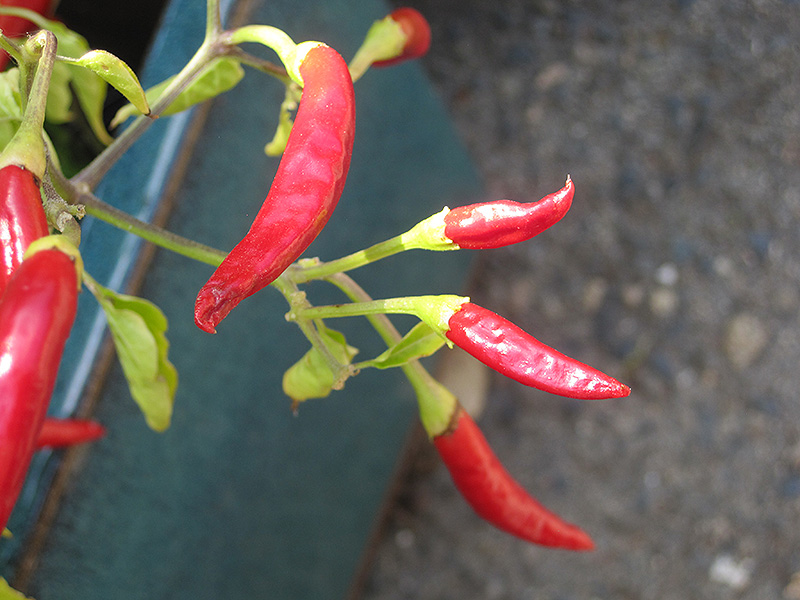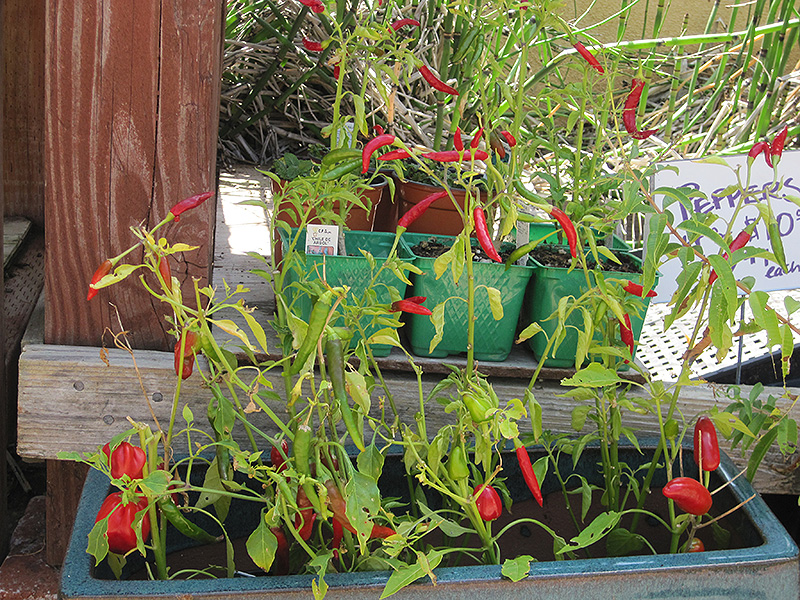Know Before You Go!
Get notified before our plants arrive in stores near you.
Plant Care Library
Height: 20 inches
Spacing: 18 inches
Sunlight:
![]()
Hardiness Zone: (annual)
Other Names: Thai Pepper
Group/Class: Hot Thai
Description:
A fiery hot and stunning selection; 3" long fruit clusters emerge green and ripens to red; great for hot sauces, stir fry, dried or pickled; performs well in patio containers, hanging baskets and gardens; all natural pest deterrent
Edible Qualities
Thai Super Chili Pepper is an annual vegetable plant that is typically grown for its edible qualities. It produces small green pointy peppers (which are technically 'berries') with orange overtones and orange flesh which are typically harvested when mature. The fruit will often fade to red over time. The peppers have a fiery taste and a crunchy texture.
The peppers are most often used in the following ways:
- Eating When Cooked/Prepared
- Cooking
- Drying
- Pickling
- Sauces
Planting & Growing
Thai Super Chili Pepper will grow to be about 20 inches tall at maturity, with a spread of 16 inches. When planted in rows, individual plants should be spaced approximately 18 inches apart. This vegetable plant is an annual, which means that it will grow for one season in your garden and then die after producing a crop.
This plant can be difficult to integrate into a landscape or flower garden, and is best grown in a designated vegetable garden. It should only be grown in full sunlight. It does best in average to evenly moist conditions, but will not tolerate standing water. It is not particular as to soil type or pH. It is somewhat tolerant of urban pollution. This is a selected variety of a species not originally from North America.
Thai Super Chili Pepper is a good choice for the vegetable garden, but it is also well-suited for use in outdoor containers and hanging baskets. With its upright habit of growth, it is best suited for use as a 'thriller' in the 'spiller-thriller-filler' container combination; plant it near the center of the pot, surrounded by smaller plants and those that spill over the edges. Note that when growing plants in outdoor containers and baskets, they may require more frequent waterings than they would in the yard or garden.
A NetPS Plant Finder tool


